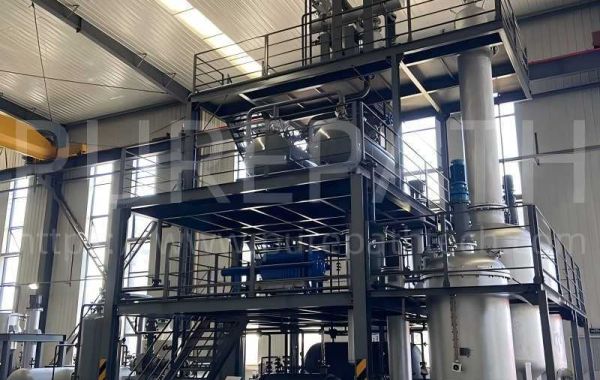As environmental regulations become increasingly stringent worldwide, the role of hydrotreating plants in petroleum refineries has become more critical than ever. These facilities are central to producing cleaner fuels that meet regulatory requirements, thereby reducing the environmental impact of petroleum products. Hydrotreating plants help refineries align with environmental goals by eliminating harmful impurities and ensuring that end products comply with global standards.
Addressing Emission Concerns
Hydrotreating plants play a significant role in reducing emissions by removing sulfur and nitrogen compounds from petroleum fractions. These compounds, when burned, lead to the formation of harmful pollutants such as sulfur oxides (SOx) and nitrogen oxides (NOx). By producing low-sulfur and low-nitrogen fuels, hydrotreating plants contribute to cleaner air and reduced environmental harm.
Meeting Global Fuel Standards
Many countries have adopted stringent regulations that limit the sulfur content in fuels. Standards such as Euro 5, Euro 6, and Tier 3 require fuels with ultra-low sulfur content to reduce vehicular emissions. Hydrotreating plants are essential for meeting these requirements by achieving deep desulfurization of feedstocks like diesel, gasoline, and jet fuel.
Impact on Refinery Operations
- Regulatory Compliance: Hydrotreating ensures that refineries meet regulatory standards, avoiding penalties and maintaining market access in regions with strict environmental laws.
- Market Competitiveness: Producing cleaner fuels enhances a refinery’s market position, as demand for environmentally friendly products continues to grow.
- Enhanced Product Quality: In addition to removing impurities, hydrotreating improves fuel stability and performance, making products more appealing to consumers.
Technological Support for Compliance
To meet environmental standards effectively, modern hydrotreating plants are equipped with advanced technologies:
- Hydrogen Management Systems: These systems optimize hydrogen usage, a critical component in the hydrotreating process, ensuring efficient and cost-effective operations.
- Advanced Catalysts: New catalysts are designed for higher activity and durability, enabling deeper impurity removal without significant increases in operational costs.
- Integrated Monitoring: Digital systems track key parameters like sulfur removal efficiency and hydrogen consumption, ensuring consistent compliance with environmental standards.
Future Outlook
As environmental regulations continue to evolve, hydrotreating plants will remain indispensable in refining operations. Investments in research and development will likely yield even more efficient and eco-friendly hydrotreating solutions, further reducing the environmental footprint of petroleum products.
Conclusion
Hydrotreating plants are a cornerstone of sustainable refinery operations, enabling compliance with stringent environmental standards while enhancing product quality. Their role in reducing emissions and producing cleaner fuels underscores their importance in a world increasingly focused on environmental sustainability.






